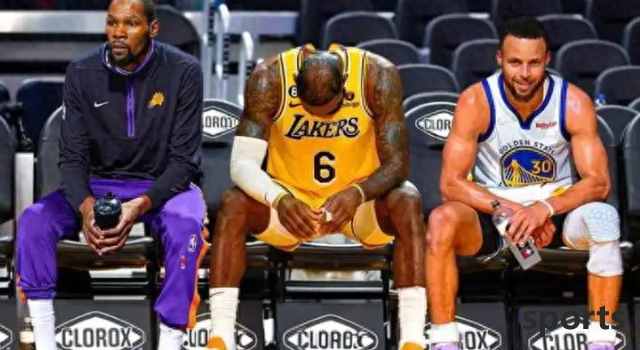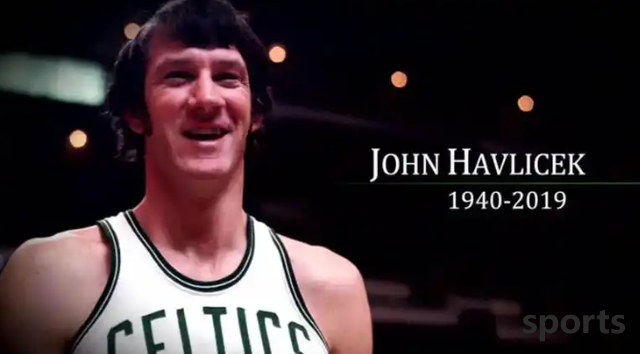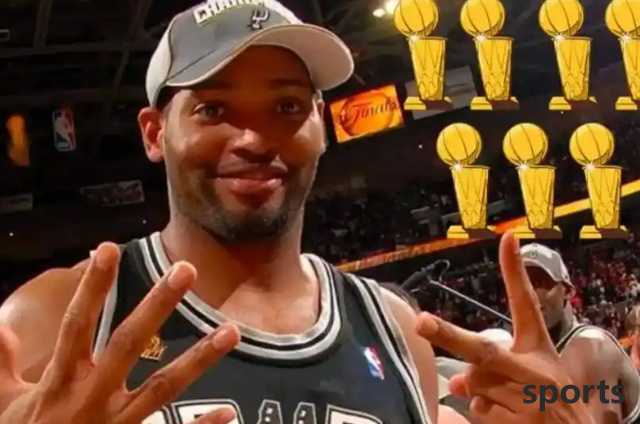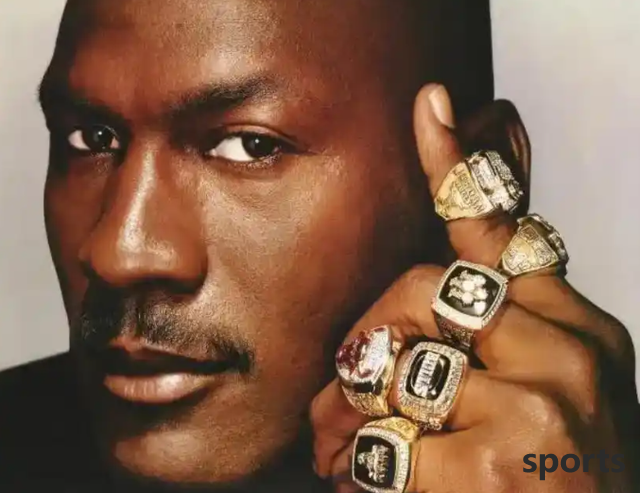Addy Dports > Basketball > I can t lose, don t dream! Only four NBA players dare to call themselves "unbeaten god of war" in the finals
I can t lose, don t dream! Only four NBA players dare to call themselves "unbeaten god of war" in the finals
The drum of the 24-25 NBA Finals is about to be sounded, and the Thunder and the Pacers are about to compete fiercely for the O'Brien Cup. On the highest stage in the basketball world, in addition to chasing honors such as MVP, scoring champion, and the best lineup, it is their ultimate dream to lead the team to win the championship. Curry, James and Durant, as the most dominant superstars in the NBA in the past fifteen years, left their own unique trajectories in the finals. Curry led the team to the finals 6 times and won 4 championships, with a total of 21 wins and 12 losses in 34 games, with a winning rate of 62%, which is unmatched among the active players; James entered the finals 10 times, won 4 championships, 22 wins and 33 losses in 55 games, with a winning rate of 40%, and his performance is also dazzling; Durant entered the finals 4 times, won 2 championships, with a winning rate of 15 wins and 5 losses in 20 games, with a winning rate of 75%, and his strength cannot be underestimated. However, in the long history of the NBA, there are four super giants who are like gods of war, leaving an indelible mark on the Shura field of basketball with a record of winning the finals.

John Haflicek: The mainstay of the Celtics
"Havlicek intercepted the ball! The game ended!" In the first 5 seconds of the final tiebreak in the 1965 Eastern Conference Finals, this shout not only allowed the Celtics to retain the hope of winning the championship, but also became a classic moment in Haflicek's legendary career. The soul of the Celtics has set foot on the finals eight times in its 16-year career and won the championship trophy eight times, including the amazing eight-game winning dynasty (1962-1969). Haflicek, who is only 1.96 meters tall, shows strong dominance on the field with his "permanent motion machine". In the 1974 Finals against the Bucks, at the age of 34, he averaged 26.4 points and 7.7 rebounds per game and won the FMVP; two years later, at the age of 36, he still led the team to defeat the Suns and won the last championship of his career. When his No. 17 jersey slowly rose in the Boston Garden Arena in 1978, Lakers legend Jerry West sighed: "The NBA should retire all No. 17 jerseys for him!" This is the highest respect for the god of war who laid the foundation of the dynasty with eight championship trophys.

Robert Horry: Mr. Key's seven-title legend
is different from Havlicek, and Robert Horry's name has never appeared on the team's core roster. He averaged only 7 points per game in his career, but he created an epic record of seven finals and seven times winning the finals as a role player. His championship path spans three giant teams: in the 1990s, he assisted Olajuwon to help the Rockets achieve two consecutive championships; at the turn of the century, he became the "monarch killer" of the OK group, helping the Lakers complete three consecutive championships; in his later years, he switched to the Spurs and added two more championship trophys for Duncan. Horry's value is far from being measured by data. The final three-pointer in the third game of the 1995 finals, the performance of the ending of the Kings in the 2002 Western Conference Finals, and the arrow that shot through the Pistons in the 2005 Finals - these key blows that have been recorded in history have made him the most threatening shadow warrior around the superstar. O'Neal commented: "Without Horry, I'll have to be at least two less!" This tells how this key gentleman with a shooting percentage of more than 40% in the finals rewrites history as a "role player".

Michael Jordan: The unbeaten basketball god
When modern fans argue about the historical status of James and Jordan, a set of data is like an immortal monument: Jordan reached the finals six times, won all six times, won the championship six times, won the FMVP, and was never forced into the tiebreak. This 100% winning rate answer sheet carved the title of "God of Basketball" firmly on his head. Jordan's performance in the finals is a perfect reflection of violent aesthetics: he averaged 41 points per game against the Suns in 1993; he scored 38 points with illness in the "Flu Battle" in 1997; he ended the Jazz with illness; and he ended the "First Century" in 1998. What is even more shocking is that he achieved the dominance of the dynasty of three consecutive championships twice. In the 1990s, when the heroes were competing for hegemony, the Bulls' flag was always flying high at the peak of the league. From this point of view, although James' record in the finals is great, it is difficult to shake Jordan, the statue of an unbeaten god.

George McCann: The pioneer of the Giants era
traces back to the early years of the NBA, and George McCann becomes the league's first superstar with a "terrifying" height of 2.08 meters. From 1949 to 1954, he led the Minneapolis Lakers in six years and led the team to the finals five times and won five times, laying the foundation for the Lakers' first dynasty. McCann's dominance is so strong that it forces the league to modify the rules for him: expand the three-second zone and introduce a 24-second offense - just because he can break the balance of the game by himself. In the 1950 Finals, he dragged his injured leg and scored 32 points and 24 rebounds, defeating the Syracuse National Team; in 1952, he scored 47 points alone. As the first legendary center in the history of the Lakers, he not only left behind five championship trophys, but also created the super center tradition that the Purple and Gold Legion has continued to this day. The No. 99 jersey hanging on the center dome of Staples silently tells how this pioneer supported an era with the power of a single core.

Four War Gods, four legends, from McCann's Giant Age to Jordan's Road to God, from Havlicek's Iron-blooded Green Shirt to the key kill of Horry, they cast the word "unbeaten" into the most dazzling medal in basketball history with an astonishing winning rate of 26 wins and 0 losses in the finals. The common mystery behind these champions is their coldness in killing their opponents' hopes at critical moments - Haflicecke's "century steal", Horry's ultimate gene, Jordan's "last shot", and McCann's subversive rule all interpret the domineering spirit of "With me here, victory will not allow others to get involved." These undefeated legends shine on the latecomers like stars: true greatness is to turn the "impossible" into a ladder to ascend to the gods under tremendous pressure. Their names have long exceeded the category of victory or defeat and become the totem of competitive sports spirit - because in the realm of the God of War, they have never lost their results.
7m cn livescore vnRelated Posts
MVP, DPOY and MIP, I want them all! The 21-year-old emperor star is expected to hit the top record!
BasketballAfter entering the 25-26 season, each team also performed well, which impressed the fans. Among them, the most unexpected performance was probably the San Antonio Spurs. Victor Vunbanyama has just recovered from blood clots, and Gregg Popovich has a...
moreThe Lakers remnant lineup is in dire straits. The predicted winning rate against the Timberwolves is less than 30%, and two more players have been added to the injury list.
BasketballAlthough the new season has just begun, the Lakers have been hit repeatedly. James' injury has obviously weakened the overall strength of the Lakers. Unexpectedly, it rained all night, and another core member Doncic also fell down. Even several...
moreTogether they scored 37+13, the Rockets deployed two sixth men, Sheppard found the right position, and the main force at the 4th position re-competed.
BasketballAfter the opening two consecutive losses, the Rockets made changes. Udoka no longer used the five major lineups, and Okogie entered the starting lineup in an effort to distance themselves and reduce the defensive intensity encountered by Durant. A b...
more
Hot Posts
- 50 points against Curry! Comparable to Jordan and Chamberlain! The most underrated superstar in the NBA
- Perkins: I publicly reminded Westbrook to control his emotions three or four years ago, otherwise he might not have a ball to play.
- Rockets 8 for 1 Durant ranks first! ESPN announces 15 votes: Curry becomes the best in the United States
- Keep the present and win the future. Is it reasonable to have three of the strongest teams in the past five years in front of the Rockets?
- Leonard s Yin-Yang contract has caused heated discussion! He was ridiculed to make two money without working. The Lakers missed him in 19 years.
- Suns Exclusive: Some Manchester United first-team players think 39-year-old three-pointer Heaton deserves the chance
- 19+5 in 24 minutes! Doncic s debut performance was good: three-pointers are very accurate
- Warriors sign Curry + Payton Jr. at the base salary: Curry brothers join forces to renew the contract
- Four teams are rushing to demand James? The rumor of the trade of 40-year-old James has triggered the NBA offseason.
- Behind the Celtic Eagles Trading: Typical cyclical interleaving transactions, the former values the future and the latter focuses on the present
Recent Posts
-
The Knicks entered the Eastern Conference Finals again after 25 years. What did Thibodeau do right?
-
The second prize + 10th lottery has been exchanged for KD for one year, and the Rockets are not bad at winning the championship!
-
Pacers missed an excellent opportunity, referee s penalty caused controversy, how the Thunder counterattack to seize dominance
-
The top 10 of the NBA history: Curry is 10th, Kobe O Fat tied, James is only 4th
-
37-year-old McGee bids farewell to the NBA and joins the defending NBL champion
-
The condition is worrying! The Pacers wing star s performance during the playoffs is a very disappointing one?
-
More than $45 million, Pistons Cunningham was selected as the NBA All-NBA Team 3, and his contract renewal became bigger
-
Alexander scored 35 points and won 15 points in the last 5 minutes, and 0 assists for the first time are not concealed by Yu
-
Fujian teenager Shi Jiajun: The idol is James, who gained a foothold with defense in the first season of the CBA
-
5 of 20 in two games! Lakers new star made 0 of 9 three-pointers and was extremely bad: revealing that he practiced three times a day but lost Summer League